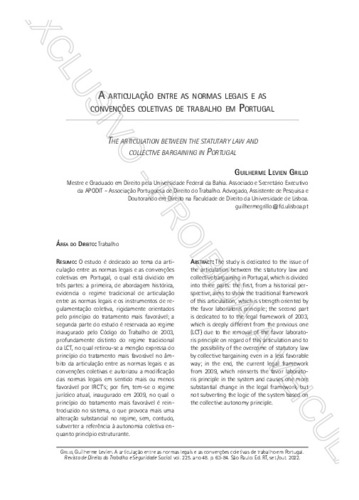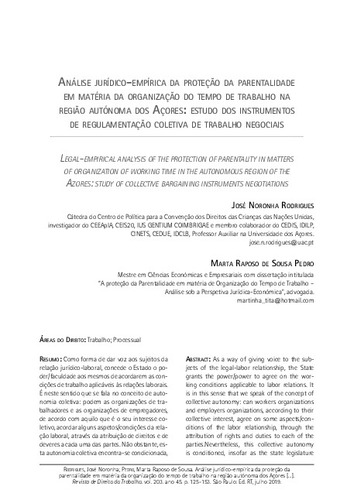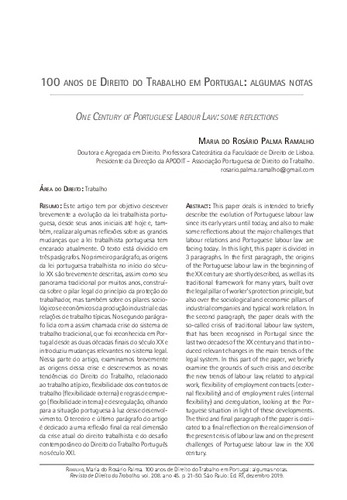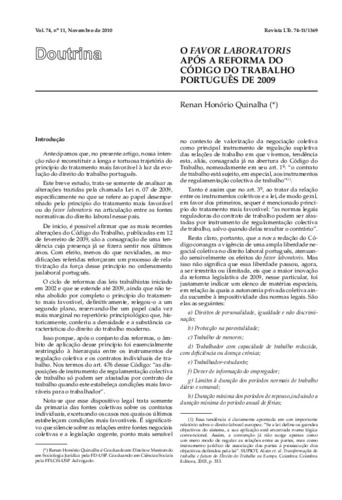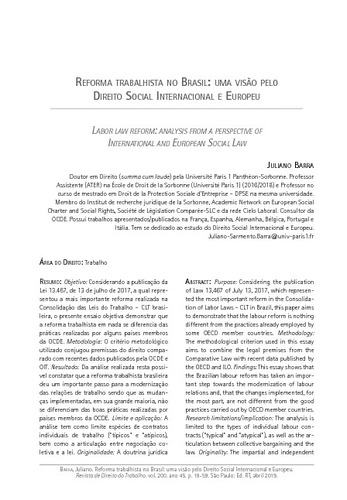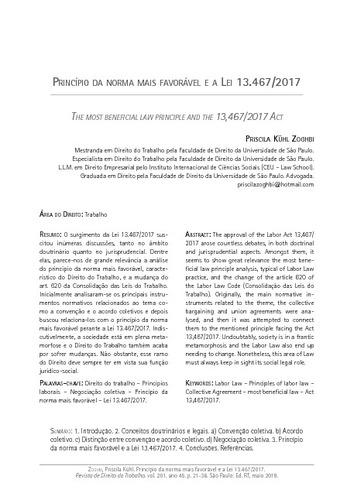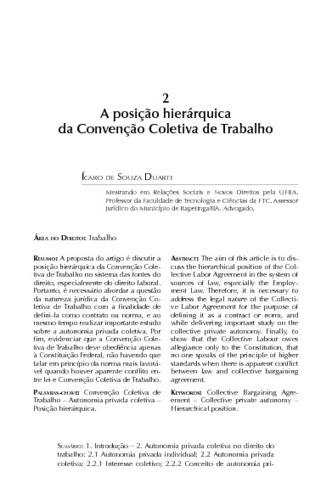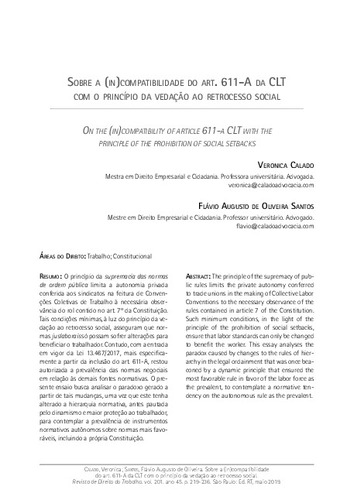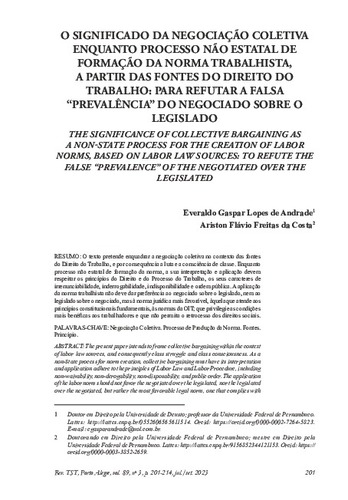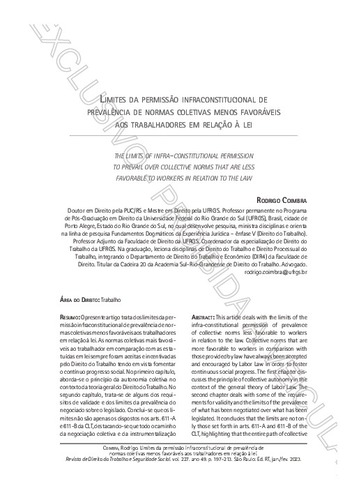Mostrar el registro sencillo del ítem
Artigo de periódico
A articulação entre as normas legais e as convenções coletivas de trabalho em Portugal
| dc.contributor.author | Grillo, Guilherme Levien | |
| dc.date.accessioned | 2024-03-12T16:55:58Z | |
| dc.date.available | 2024-03-12T16:55:58Z | |
| dc.date.issued | 2022-10 | |
| dc.identifier.citation | GRILLO, Guilherme Levien. A articulação entre as normas legais e as convenções coletivas de trabalho em Portugal = The articulation between the statutary law and collective bargaining in Portugal. Revista de direito do trabalho e seguridade social, São Paulo, v. 48, n. 225, p. 63-84, set./out. 2022. | pt_BR |
| dc.identifier.uri | https://hdl.handle.net/20.500.12178/230378 | |
| dc.description.abstract | [por] Dedica-se ao tema da articulação entre as normas legais e as convenções coletivas em Portugal, o qual está dividido em três partes: a primeira, de abordagem histórica, evidencia o regime tradicional de articulação entre as normas legais e os instrumentos de regulamentação coletiva, rigidamente orientados pelo princípio do tratamento mais favorável; a segunda parte do estudo é reservada ao regime inaugurado pelo Código do trabalho de 2003, profundamente distinto do regime tradicional da LCT, no qual retirou-se a menção expressa do princípio do tratamento mais favorável no âmbito da articulação entre as normas legais e as convenções coletivas e autorizou a modificação das normas legais em sentido mais ou menos favorável por IRCT’s; por fim, tem-se o regime jurídico atual, inaugurado em 2009, no qual o princípio do tratamento mais favorável é reintroduzido no sistema, o que provoca mais uma alteração substancial no regime, sem, contudo, subverter a referência à autonomia coletiva enquanto princípio estruturante. | pt_BR. |
| dc.description.abstract | [eng] The study is dedicated to the issue of the articulation between the statutory law and collective bargaining in Portugal, which is divided into three parts: the first, from a historical perspective, aims to show the traditional framework of this articulation, which is strength oriented by the favor laboratoris principle; the second part is dedicated to to the legal framework of 2003, which is deeply different from the previous one (LCT) due to the removal of the favor laboratoris principle on regard of this articulation and to the possibility of the overcome of statutory law by collective bargaining even in a less favorable way; in the end, the current legal framework from 2009, which reinserts the favor laboratoris principle in the system and causes one more substantial change in the legal framework, but not subverting the logic of the system based on the collective autonomy principle. | pt_BR. |
| dc.description.tableofcontents | O princípio do tratamento mais favorável enquanto preceito de aplicação e limite à autonomia coletiva laboral no regime tradicional da LCT -- A articulação das normas legais e os instrumentos de regulamentação coletiva na codificação laboral -- O CT de 2009 e o modelo de articulação entre a lei e a convenção coletiva | pt_BR |
| dc.language.iso | pt_BR | pt_BR |
| dc.relation.ispartof | Revista de direito do trabalho e seguridade social: vol. 48, n. 225 (set./out. 2022) | pt_BR |
| dc.subject | Portugal. Código do trabalho (2003) | pt_BR |
| dc.subject | Portugal. Lei n. 7, de 12 de fevereiro de 2009 | pt_BR |
| dc.subject | Legislação trabalhista, Portugal | pt_BR |
| dc.subject | Convenção coletiva de trabalho, Portugal | pt_BR |
| dc.subject | Princípio da norma mais favorável, Portugal | pt_BR |
| dc.title | A articulação entre as normas legais e as convenções coletivas de trabalho em Portugal | pt_BR |
| dc.title.alternative | The articulation between the statutary law and collective bargaining in Portugal | pt_BR |
| dc.type.genre | Artigo de periódico | pt_BR |
| dc.identifier.rvbisys | 1227149 | |
| dc.relation.ispartoflink | https://hdl.handle.net/20.500.12178/228976 | pt_BR |
Este ítem aparece en la(s) siguiente(s) colección(ones)
-
Artigos9527


